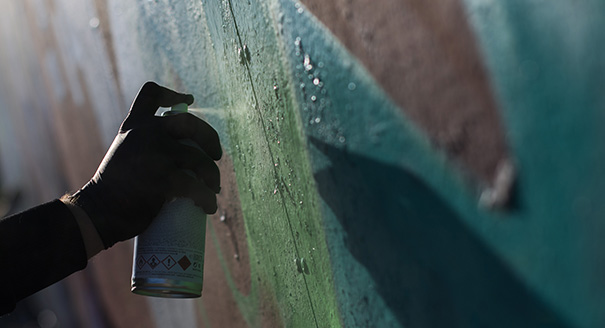At the Carnegie Endowment’s website, Dalia Ghanem, Loulouwa al-Rachid, and Sabri Benalycherif have just published a very interesting photo essay on the graffiti of protesters in Algiers and Beirut, where large demonstrations have taken place this year against the countries’ respective governments and political systems. Describing the graffiti, the authors write that “Some evoke the past to illustrate a long history of suffering, while others use metaphors and name-calling to unite people against their ‘oppressors.’” A more profound aim in posting graffiti, they argue, is that for protesters, “in both countries, graffiti art subverts state control and takes back the public space.”
commentary
The Writing Is on the Wall
Graffiti by protestors in Algiers and Beirut shows their desire to take control of public space.
Published on October 31, 2019
More work from Diwan


 collectionArab Spring 2.0
collectionArab Spring 2.0Countries in the Middle East and North Africa have been witnessing a resurgence of the uprisings that had swept the region in 2010 and 2011. Many experts described what was called the Arab Spring as a failure, with countries descending into conflict or reverting back to autocratic tendencies, while populations abandoned protest squares. Yet with the unwillingness of Arab governments to tackle the many sources of dissatisfaction at home, citizens have returned to the streets to demand good governance and economic opportunities in twelve of the 22 Arab countries. Carnegie scholars in Beirut and throughout the region offer their analyses of this new wave of protests, explaining its causes, characteristics, and consequences for the politics, economies, and security of the countries involved, and for the broader region in general.
- commentaryAn Old Lebanese Habit
As with Lebanon’s other sects, has Hezbollah’s hubris brought devastating sectarian nemesis?
- commentaryThe Palestinian Struggle Needs to be Reimagined
The U.S. election result and Yahya Sinwar’s death are markers that the contemporary national movement is moribund.
- commentarySyria’s Objective Is to Disunite From the Arenas
The priority of the Assad regime as the conflict in Lebanon rages is political survival, which has taken precedence over all else.
- commentaryComplicit in the Middle East’s Distress
In an interview, Marwan Muasher looks back on U.S. policy toward the ongoing crisis, and sees even worse ahead.





